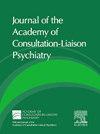童年不良经历的频率及其对肝移植患者的情绪、酒精复发和预后的影响:一项回顾性队列研究
IF 2.5
4区 心理学
Q2 PSYCHIATRY
Journal of the Academy of Consultation-Liaison Psychiatry
Pub Date : 2024-11-01
DOI:10.1016/j.jaclp.2024.06.006
引用次数: 0
摘要
简介童年不良经历(ACE)与不良健康行为和医疗疾病的发生有关。在普通人群中,ACE与不良健康后果的关系已得到充分证实;但在肝移植(LT)受者中,这种关系仍不太明确。因此,本研究旨在确定ACE的患病率以及ACE对LT预后的影响:方法:对一家学术性肝移植中心11年来的所有LT受者的电子病历进行回顾性分析。方法:对一家学术性肝移植中心11年来的所有LT受者的电子病历进行回顾性分析,提取人口统计学特征、诊断特征和疾病特征,并对ACE病史进行比较。采用学生 t 检验、卡方检验或费雪精确检验对 ACE 病史与所提取变量之间的相关性进行统计检验。使用对数秩检验对移植物和患者的存活率进行检验:在1172名LT受者中,24.1%的受者有ACE病史。女性(p = 0.017)和受教育程度较低(p < 0.001)的受者出现 ACE 的频率较高。有 ACE 病史的受者感染 HCV 的几率更高(p < 0.001),移植前的体重指数更高(结论:四分之一的 LT 受者有 ACE 病史:四分之一的LT受者经历过ACE。ACE与精神病诊断史、药物使用障碍、PHQ-9和GAD-7评分升高以及移植后酗酒复发率较高有关。在移植前和移植后,增加/改善获得适当的心理健康和药物使用服务和支持的途径可能会使这一人群受益。本文章由计算机程序翻译,如有差异,请以英文原文为准。
The Frequency and Impact of Adverse Childhood Experiences on Mood, Alcohol Relapse, and Outcomes in Liver Transplantation: A Retrospective Cohort Study
Background
Adverse childhood experiences (ACEs) are associated with the development of negative health behaviors and medical illnesses. ACE's association with poor health outcomes has been well documented in the general population; however, this relationship remains less clear in liver transplant (LT) recipients.
Objective
The aims of this study were to determine the prevalence of ACE and the influence of ACE on LT outcomes.
Methods
A retrospective electronic medical record review of all LT recipients over 11 years at an academic LT center. Demographic, diagnostic, and disease characteristics were extracted and compared for a history of ACE. Associations between a history of ACE and extracted variables were statistically tested using Student's t-test, chi-square tests, or Fisher's exact test, where appropriate. Graft and patient survival were tested using log-rank tests.
Results
Of the 1172 LT recipients, 24.1% endorsed a history of ACE. Females (P = 0.017) and recipients with lower levels of education (P < 0.001) had a higher frequency of ACE. Those with a history of ACE had a higher prevalence of hepatitis C virus (P < 0.001) and higher pretransplant body mass index (P < 0.001). Recipients with a history of ACE had higher prevalence of mood (P < 0.001), anxiety (P < 0.001), post traumatic stress disorder (P < 0.001), alcohol use (P < 0.001), and cannabis use (P < 0.001) disorders, as well as higher Patient Health Questionnaire-9 (P < 0.001) and General Anxiety Disorder-7 (P < 0.001) scores pre- and post-transplant. Those with ACE had a higher incidence of recorded relapses to alcohol by 3 years post-transplant (P = 0.027). Mean lab values, graft survival, and patient survival were not significantly different between those with and without a history of ACE except for total bilirubin at 6 months (P = 0.021).
Conclusions
One-quarter of LT recipients have experienced ACE. ACE was associated with a history of psychiatric diagnoses, substance use disorders, elevated Patient Health Questionnaire-9 and General Anxiety Disorder-7 scores, and a higher prevalence of relapse to alcohol use after transplant. This population may benefit from increased/improved access to appropriate mental health and substance use services and support in the peri- and post-transplant period.
求助全文
通过发布文献求助,成功后即可免费获取论文全文。
去求助
来源期刊

Journal of the Academy of Consultation-Liaison Psychiatry
Psychology-Clinical Psychology
CiteScore
5.80
自引率
13.00%
发文量
378
审稿时长
50 days
 求助内容:
求助内容: 应助结果提醒方式:
应助结果提醒方式:


